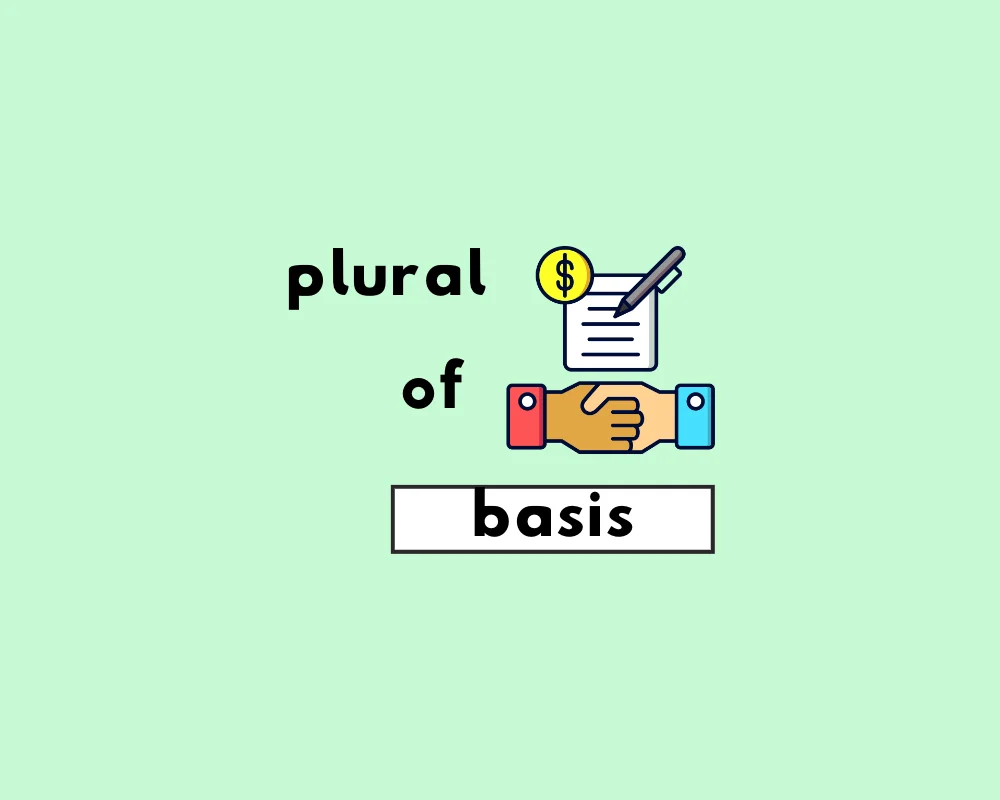Is “basis” singular or plural?
Basis is a singular noun. The plural is bases, pronounced like base–eaze. Basis, which hails from Greece, is an irregular plural in English. Keep reading to see why.
The basis for the new rule is explained in the document.
The scientists presented multiple bases for their hypothesis.
There were several basis for the argument.
The bases of the idea was simple.
What the definition of basis/bases?
The Dictionary.com defines the word basis as “the bottom or base of anything; the part on which something stands or rests.” Another similar understanding of the word basis, “anything upon which something is based; fundamental principle; groundwork.”
What’s the plural of basis?
The plural of basis (bases) is irregular. Though it ends in –es as a plural, it does so by replacing its ending in the singular case, which uses ‘is’. The standard rule is the es/-s is added to the end of a noun to become plural. For example, books, phones, dogs, cats and videos all add an s to show more than one is being mentioned.
This makes basis pretty irregular, though it’s not the only word in English that behaves this way. Analysis, diagnosis, crisis and oasis all follow the same pattern and switch from singular to plural by replacing the –sis with –ses as a plural.
Irregular nouns that end in -sis/-ses
| singular | plural |
| basis | bases |
| crisis | crises |
| diagnosis | diagnoses |
| oasis | oases |
| synopsis | synopses |
| thesis | theses |
Examples of “basis” in context
She wouldn’t normally have rented on that basis but he sent her three months payment, in cash, and she left a key in an agreed location.
McGregor must remain confined, on the basis of the medical reports we have received.
They want all groups to be treated on an equal basis.
We’re going to be meeting there on a regular basis.
I’ve always worked on the basis that any extra money would go into property.
The plural of “basis,” focus on the -is to -es ending change: basis -> bases.
Examples of the word “bases” in context
They are yellowish-red solids, which behave as weak bases, their salts undergoing hydrolytic dissociation in aqueous solution.
That rather covers all the bases, doesn’t it?
But they supply the bases for that general theory which, as we have seen, is indispensable in economic investigation.
However, these same beliefs are the bases of their division.
They are feeble bases which distil unchanged.
Synonyms of basis
- grounds
- base
- support
- footing
- groundwork
- rationale
Origin of the word basis
From etymonline on basis:
“1570s, “bottom or foundation” (of something material), from Latin basis “foundation,” from Greek basis “a going, a step; a stand, base, that whereon one stands.”
Keep going!
What’s the difference between they’re, their, and there?
Sources
Work Sheet
What is the correct plural form of the noun “basis”?
According to the blog post, “basis” is a:
The plural form “bases” is pronounced like:
The blog post states that “basis” is an irregular plural because:
Which of the following words follows the same irregular plural pattern as “basis,” according to the post?
The _______ for the new rule is explained in the document.
The scientists presented multiple _______ for their hypothesis.
There were several _______ for the argument.
They want all groups to be treated on an equal _______.
However, these same beliefs are the _______ of their division.
Frequently Asked Questions
What is the plural of basis?
+
How do you form the plural of basis?
+
Is basis a regular or irregular noun?
+
How are basis & bases used correctly?
+
Are there other words like basis?
+
Yash, D. "What’s the Plural of Basis?." Grammarflex, Jun 6, 2025, https://www.grammarflex.com/whats-the-plural-of-basis/.











